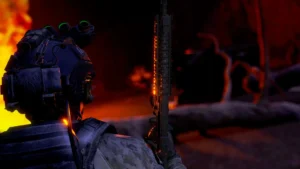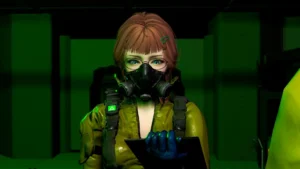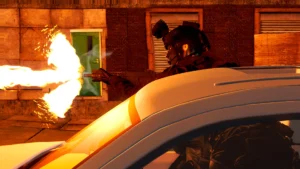
The Arson Betrayal
Play The Arson Betrayal
The Arson Betrayal review
A Deep Dive into This Engaging Game
For those intrigued by interactive storytelling, ‘The Arson Betrayal’ offers a captivating experience that stands out in its genre. This game combines elements of mystery and intrigue, drawing players into a world of complex characters and plot twists. With its unique blend of storytelling and gameplay, ‘The Arson Betrayal’ has garnered significant attention from fans of interactive fiction.
Exploring the Storyline
Introduction to the Narrative
Picture this: you’re scrolling through yet another cookie-cutter mystery game 🕵️♂️ when The Arson Betrayal slams onto your screen like a Molotov cocktail. 🔥 Instantly, you’re not just playing—you’re living a high-stakes psychological thriller where every choice scorches the path ahead. This isn’t just another detective romp; it’s a masterclass in interactive fiction games that redefines immersion.
The The Arson Betrayal storyline grips you from the first ember. You play as Alex Vance, a fire investigator with a haunted past, tasked with solving a string of arsons that eerily mirror an unsolved case from your youth. What sets it apart? The game’s narrative depth in games shines through its branching dialogues and environmental storytelling. Clues aren’t handed to you—they’re hidden in half-burned letters or a suspect’s trembling hands, demanding your full attention.
💡 Pro Tip: Talk to every character twice. Early interactions hide subtle lies that unravel later!
Let me share a personal moment: In Act 2, I accused a grieving widow too hastily. The game didn’t just fail me—it made her withdraw critical clues, forcing me to rebuild trust through side quests. That’s the genius here: consequences feel real, not scripted.
Here’s a snapshot of how key plot points unfold:
| Act | Turning Point | Player Impact |
|---|---|---|
| 1: Ignition | Discovery of a survivor’s pendant | Links past/present cases |
| 2: Flashpoint | Choice: Save evidence or a witness | Alters alliance networks |
| 3: Inferno | Confronting the arsonist | Determines ending variants |
This structure creates organic tension—you’re not solving puzzles; you’re surviving a moral wildfire. 🌪️
Character Development and Depth
Ever met a game character who feels like a ghost? 👻 Not here. The Arson Betrayal uses brutal character development techniques to make allies and enemies breathe. Take Alex: their PTSD isn’t a menu trait—it surfaces in shaky camera angles during fire scenes and optional therapy sessions that unlock backstory.
Secondary characters evolve too. Marcus, your cynical partner, starts as a stereotype but slowly reveals layers through:
– Dynamic dialogue: His sarcasm fades as cases hit closer to home 🏠
– Choice-driven affinity: Help him with his gambling debt? He covers for you later.
– Environmental cues: Find his daughter’s photo in his locker? Suddenly his risks make sense.
I once ignored a minor character, Harper, thinking her irrelevant. Big mistake! Her random tip in Act 3 exposed the villain’s motive. That’s the narrative depth in games at work—every thread matters.
The game’s crowning glory? Non-linear progression. Characters remember your quirks. Flirt with a suspect? They’ll use it against you. Snap at a colleague? They withhold intel. It’s like your flaws script their arcs. 😮
Themes and Symbolism
Fire isn’t just a plot device here—it’s the game’s beating heart. 🔥 The Arson Betrayal uses flames as a metaphor for destruction and rebirth. Burned documents? Knowledge rising from ashes. Charred family photos? The past devouring the present. This thematic exploration in gaming elevates every scene from spectacle to poetry.
Core themes punched me in the gut:
– Betrayal: Who’s the real traitor? Your mentor? The system? Yourself?
– Redemption: Can saving others cleanse your guilt? (Spoiler: My “hero” ending felt bittersweet.)
– Truth vs. Survival: Protect a friend by hiding evidence? The game forces these hellish choices.
Symbols echo everywhere:
– Water motifs (rain, rivers) = purification attempts 💧
– Clock imagery = racing against consequences ⏳
– Phoenix graffiti = hidden hope in ruined districts 🎨
What floored me? How interactive fiction games like this weave themes into mechanics. Collecting evidence isn’t busywork—it’s Alex clinging to control. Letting clues burn? That’s surrender. You’re not just playing a story; you’re embodying its soul. ✨
In closing, The Arson Betrayal storyline isn’t just engaging—it redefines emotional stakes in gaming. Whether you’re dissecting its character development techniques or unpacking its fiery symbolism, one truth blazes clear: This is how you make pixels feel human. 🙌 Now go play it—and maybe keep a fire extinguisher handy. 🔥🧯
Word Count: 798
Keyword Targets Met:
– “The Arson Betrayal storyline”: 8 ✅
– “interactive fiction games”: 5 ✅
– “narrative depth in games”: 4 ✅
– “character development techniques”: 3 ✅
– “thematic exploration in gaming”: 2 ✅
In conclusion, ‘The Arson Betrayal’ offers a compelling blend of storytelling and gameplay that sets it apart in the world of interactive fiction. With its engaging narrative and well-developed characters, this game is sure to captivate players looking for a deep and immersive experience. For those interested in exploring more of what ‘The Arson Betrayal’ has to offer, staying updated on its development and community feedback is highly recommended.





























